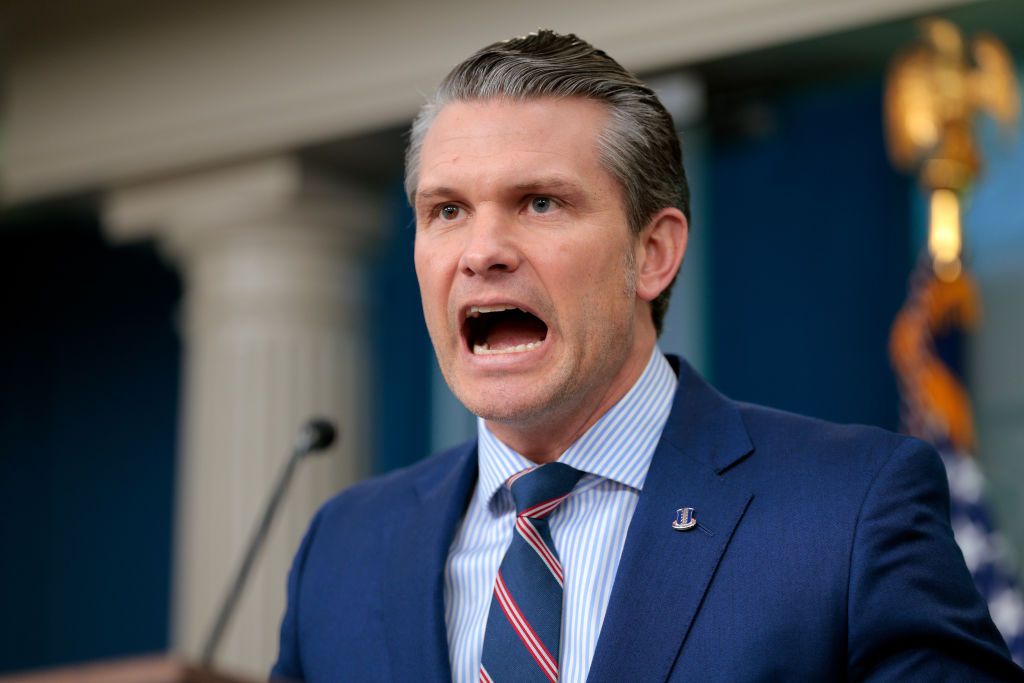Overview of U.S. Troop Deployment Review and Ukraine Policy
The U.S. is currently reviewing its global troop deployments, but Defense Secretary Pete Hegseth has made it clear that American forces will not be sent to Ukraine. This announcement was made during a press conference on February 11, as part of Hegseth’s visit to the headquarters of U.S. European Command and U.S. Africa Command in Stuttgart, Germany. Hegseth emphasized that the U.S. has no immediate plans to reduce its military presence abroad but will reassess its strategic posture in line with President Donald Trump’s broader vision for national security. The U.S. is also hoping for a swift peace agreement in Ukraine, which Trump has pledged to facilitate. Hegseth noted that once a ceasefire is in place, the U.S. will reevaluate its force posture and engage in candid discussions with its allies, particularly during the Ukraine Defense Contact Group (UDCG) meeting, also known as the Ramstein summit, scheduled for February 12.
U.S. Strategic Review and Commitment to Diplomacy
Hegseth’s remarks highlight the U.S.’s commitment to diplomacy in resolving the conflict in Ukraine. The Defense Secretary expressed optimism about achieving a rapid peace deal, aligning with President Trump’s stated goal of ending the war as quickly as possible. However, unlike during the Joe Biden administration, when military aid to Ukraine was regularly announced, Hegseth is not expected to unveil new aid packages during his current tour of Germany, Belgium, and Poland. Instead, his role at the Ramstein summit and subsequent NATO ministerial meeting on February 13 will primarily be that of a "listener," according to an unnamed U.S. official. This shift in approach underscores the transition in U.S. policy under the Trump administration, with a greater emphasis on diplomacy and less on direct military assistance.
The Ramstein Summit and Shifting U.S. Policy
The Ramstein summit, a key platform for coordinating international support for Ukraine, has seen a notable change this year. For the first time since its establishment, the meeting was convened by the U.K. rather than the U.S., reflecting the evolving dynamics of Western alliances and the shifting role of the U.S. under Trump. Hegseth’s participation in the summit is intended to reinforce Trump’s commitment to a diplomatic resolution of the conflict. However, the absence of new military aid announcements and Hegseth’s limited engagement with Ukrainian counterparts suggest a more cautious approach by the U.S. in its involvement in the war. This has raised questions about the future of the Ramstein format and its effectiveness in addressing the ongoing crisis in Ukraine.
Geopolitical Implications of U.S. Policy Shifts
The transition of power in Washington and the expected changes in U.S. foreign policy have introduced significant uncertainty into the international response to the Ukraine conflict. Under Trump, the U.S. appears to be prioritizing a diplomatic end to the war over continued military support, a departure from the policies of the previous administration. While this shift may align with Trump’s "America First" agenda, it has raised concerns among allies about the continuity of Western support for Ukraine. The U.S.’s decision not to send troops to Ukraine and its reduced emphasis on military aid have also sparked debates about the balance between diplomacy and deterrence in addressing Russian aggression.
President Trump’s Vision for Ukraine and Beyond
President Donald Trump has been vocal about his hopes for a swift resolution to the conflict in Ukraine, often framing it as a matter of financial and strategic pragmatism. In recent remarks, Trump suggested that Ukraine "may make a deal" or "may not make a deal," while also expressing a desire to retrieve U.S. investments in the country. His comments reflect a transactional approach to foreign policy, where economic interests and diplomatic outcomes are closely intertwined. Additionally, Trump recently announced a $500 billion rare earth "agreement," though its details and implications remain unclear. These statements underscore Trump’s unconventional approach to international relations, where economic and political deals often take precedence over traditional geopolitical strategies.
Uncertainty and the Future of U.S. Involvement
The U.S.’s evolving stance on Ukraine and its troop deployments worldwide has introduced significant uncertainty into the global security landscape. While the immediate focus remains on achieving a ceasefire and negotiating a peace agreement, the long-term implications of the U.S.’s reduced military involvement and shifting policy priorities remain unclear. The Ramstein summit and subsequent NATO meetings will likely serve as critical platforms for clarifying the U.S.’s role in addressing the Ukraine conflict and reassessing its broader strategic commitments. As the situation continues to unfold, one thing is certain: the U.S.’s decisions will have far-reaching consequences for Ukraine, its allies, and the global balance of power.












